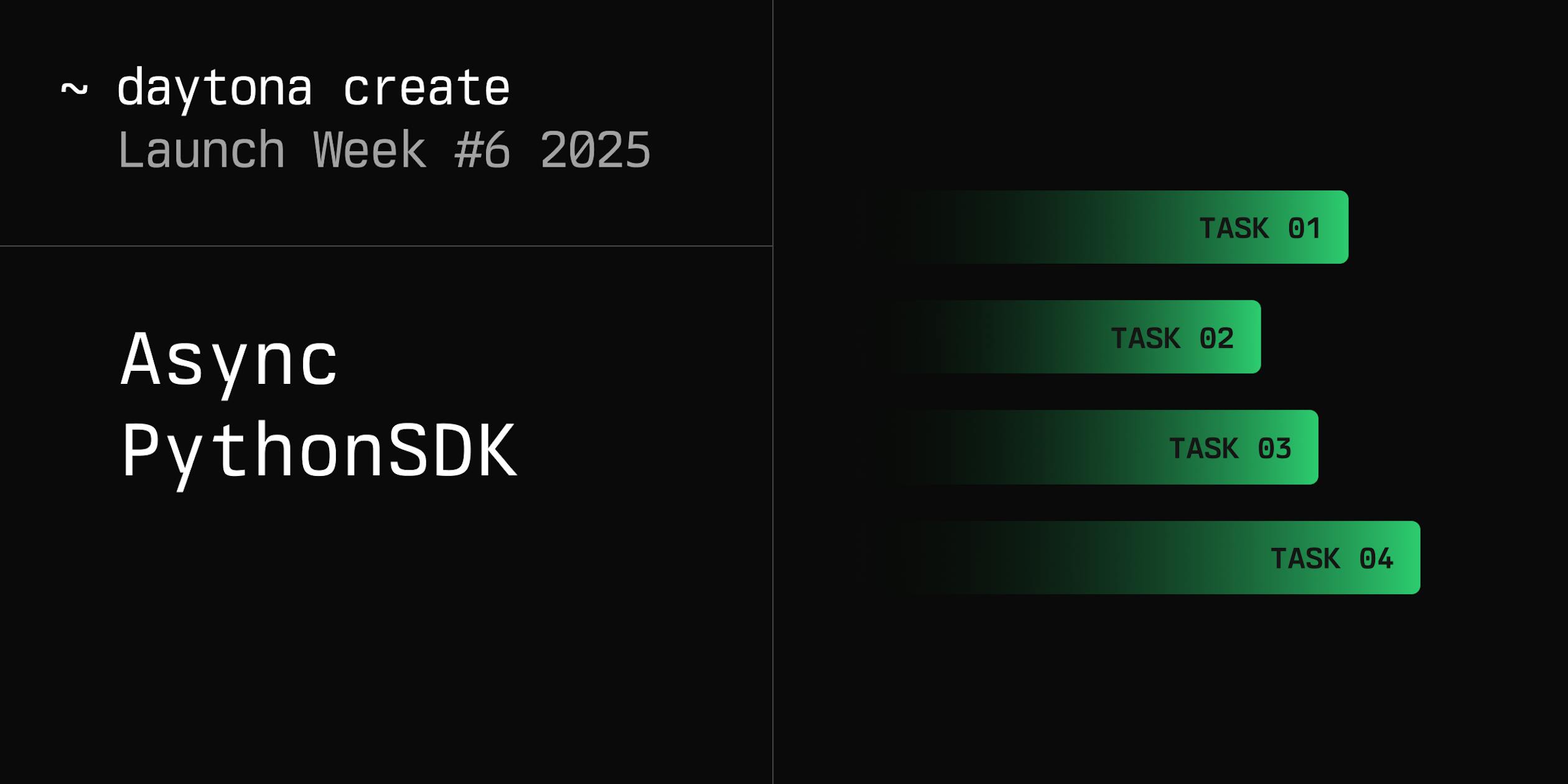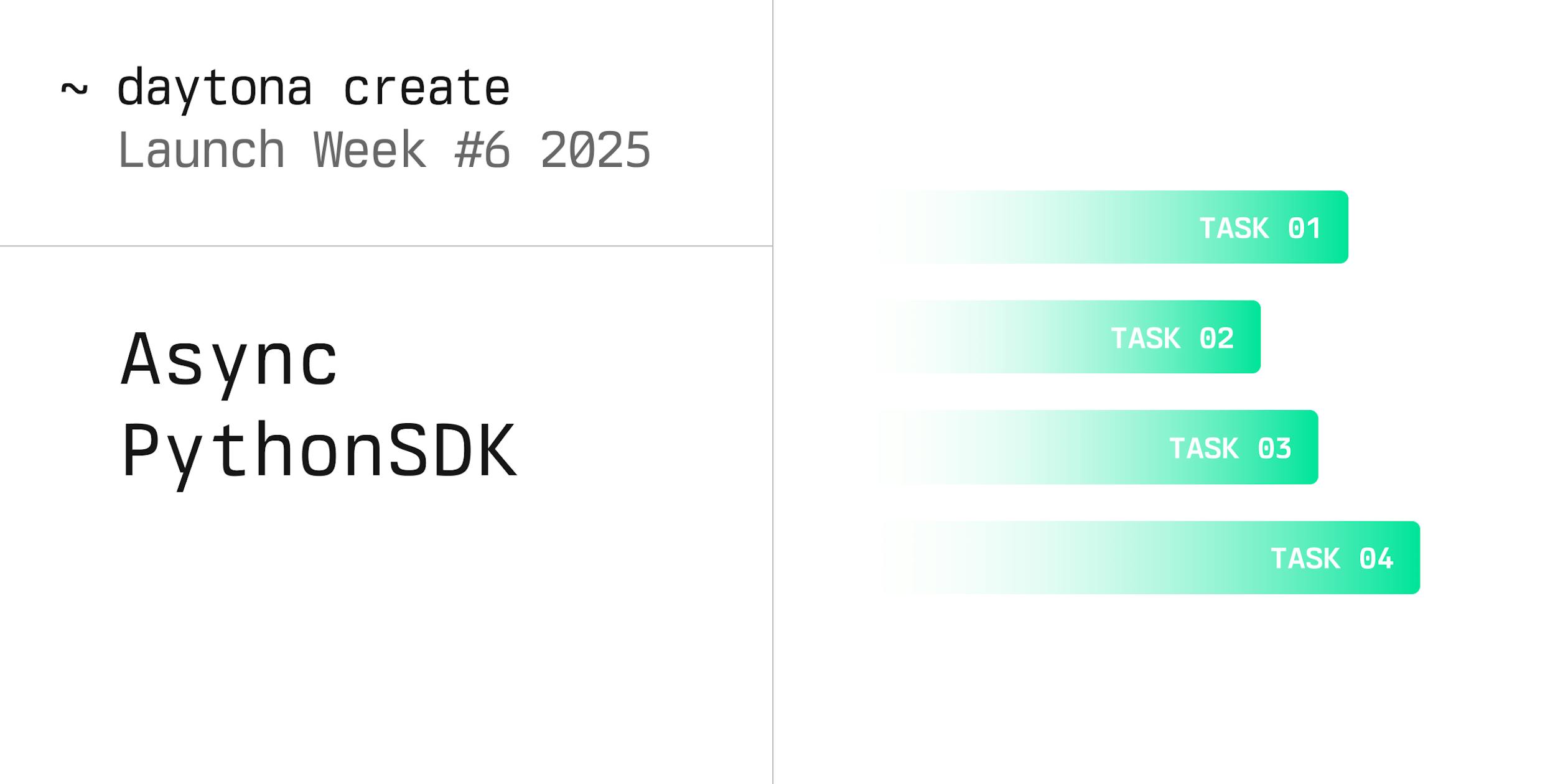Async Python SDK: More Speed. Less Blocking
You asked for it, and now it’s here.
Daytona’s Python SDK now supports async functions, giving developers more control over how their applications handle concurrent tasks and API calls.
Why Async Matters
Python’s async capabilities have become essential for building fast, responsive applications, especially in environments where I/O latency is the bottleneck. Frameworks like FastAPI, asyncio, and HTTPX have made async-first design mainstream, and with good reason.
With traditional synchronous code, each API request blocks the thread until it completes. That’s fine for simple scripts, but it falls apart at scale, particularly in agent-based architectures, serverless functions, and web services that juggle multiple concurrent operations.
With the async SDK, agents and apps can now:
Run API requests in parallel
Avoid freezing or idle time waiting on remote calls
Scale better under heavy loads
Handle large task graphs without stalling
Example: Async Environment Creation
1import asyncio2from daytona_sdk import Daytona, CreateSandboxParams34async def main():5 daytona = Daytona()6 params = CreateSandboxParams(language="python")7 sandbox = await daytona.create(params)8 print("Sandbox is ready")910asyncio.run(main())
With just a few changes, your agent can perform multiple tasks in flight, like building an image, streaming logs, or provisioning compute, without blocking execution.
Built for the Modern Python Stack
More and more Python developers are shifting to async-native workflows. The new Daytona async SDK plugs into that stack, including use cases with:
FastAPI
LangChain agents
Custom event loops
High-concurrency task managers
Whether you are running workflows locally or orchestrating agents in the cloud, the async SDK is the right foundation for building responsive, non-blocking systems.
It’s Live
The async Daytona SDK is now available. If you're already using the Python SDK, switching to async is simple.
More speed. Less blocking. Better agents.




